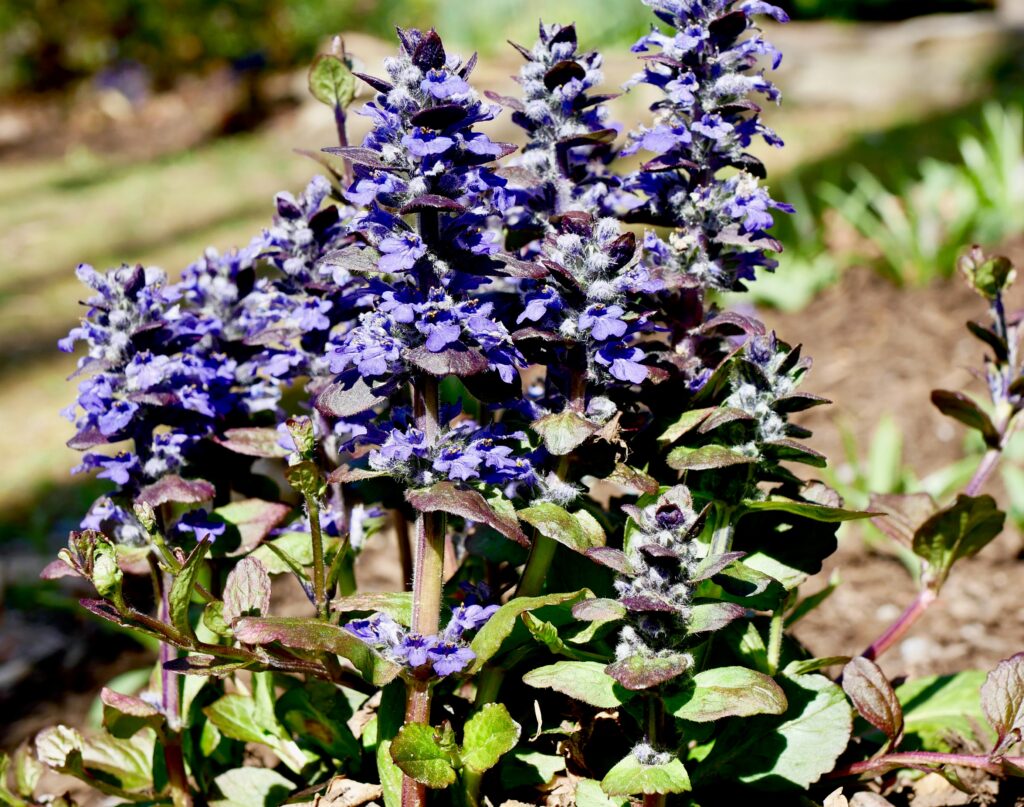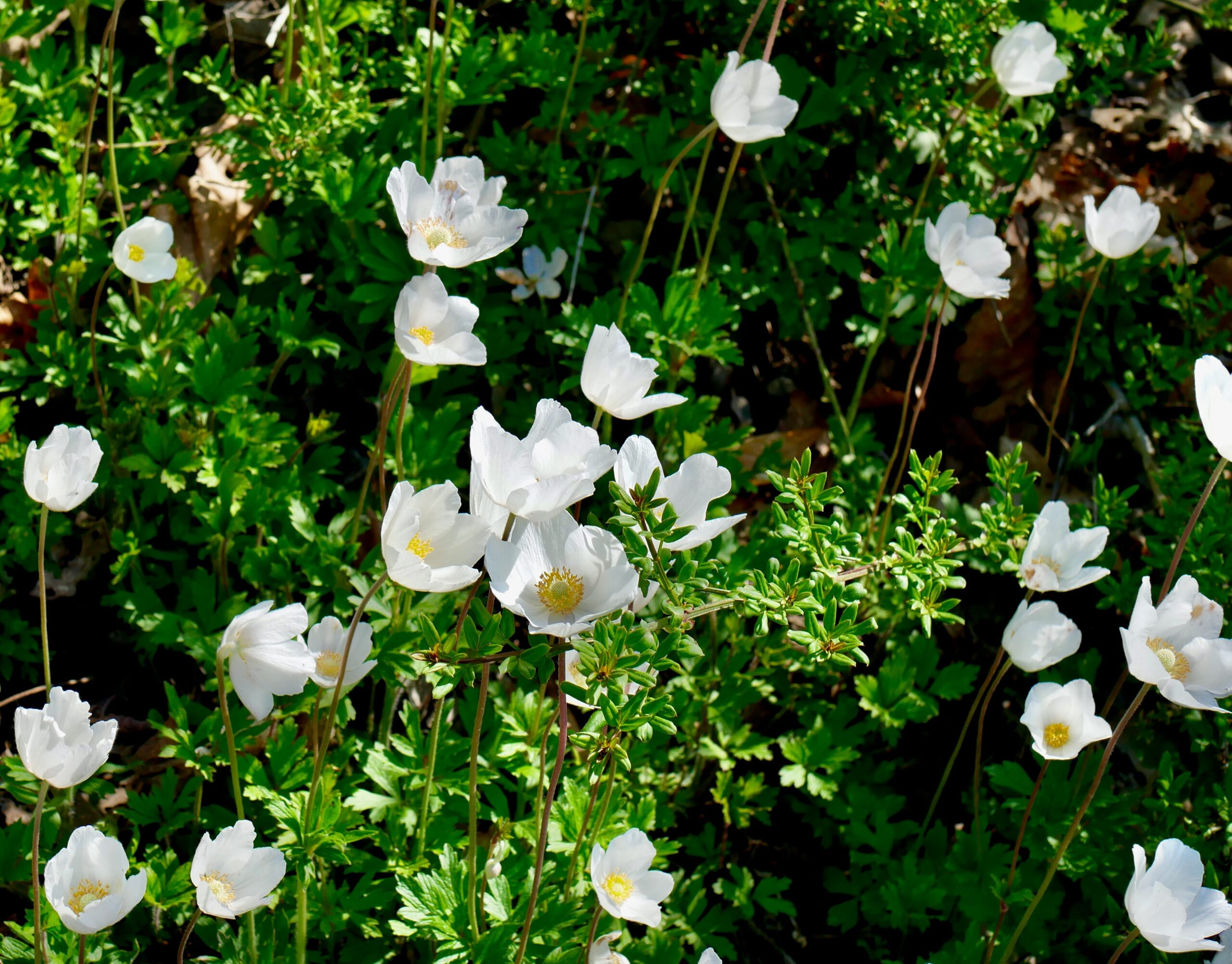MORGANTOWN — This week, let me take you on a stroll through the West Virginia Botanic Garden. Start from the lower parking lot and as you walk down the path toward the map kiosk, you will find a patch on your left of meadow anemone (Anemone canadensis), also called windflower, a member of the buttercup family. The meadow anemone is an herbaceous perennial that does well on stream banks and in moist meadows.

Further down the path, we will make a right and head into the Secret Garden. This garden is guarded by hemlocks and has many plants that love the shade. A new acquisition to the garden is now in flower, the heartleaf bergenia (Bergenia crassifolia). Heartleaf bergenia has thick, succulent-like leaves and the blooms are clustered in a dense display of a dozen or more that rise up on short stalks.

Leaving the Secret Garden we turn right up to the Yagle Garden, where the leatherleaf viburnum (Viburnum rhytidophylloides) is in bloom and attracting all manner of pollinating insects, including some bumblebees, small wasps, butterflies, and moths. Leatherleaf viburnum is an excellent shrub for gardens, as they have large white blooms that pollinators love and bright red fruit in fall that birds enjoy.

Heading away from the Yagle Garden and across the Event Lawn, you will find our new pergola. There, at its feet, you will see Pulmonaria “Shrimps on the Barbie,” a type of lungwort. This new cultivar has deep pink flowers that are clustered together on small stalks. Lungwort is named for its green leaves with white spots that resemble a diseased lung. It does not, however, have any medicinal properties.

From the pergola, we walk uphill to the George W. Longenecker Shade Garden, where many wildflowers are in bloom. A new acquisition is also in bloom here, the Ajuga reptans “Catlin’s Giant,” a very large cultivar of the genus more commonly known as bugleweed.
This new addition to the Shade Garden is quite impressive with large, greenish-red leaves and deep-lavender blooms that are up to six inches tall. Ajuga is a popular groundcover in the mint family that spreads readily using ground runners.

At last, we head down into the Rhododendron Garden, where many rhododendrons and azaleas are in bloom, including some of our large-leaf rhododendrons. An unusual one is the Rhododendron makinoi that has long narrow leaves which are heavily felted brown on the undersides. The pink blooms are bell-shaped, appealing to pollinators, including bumblebees and butterflies.
Don’t stop here at the WVBG — continue down the path, and find something new on our over 4.5 miles of walking trails!
David P. Davis, Ph.D., gardener at the WVBG. For visiting information, maps, and more, visit WVBG.org




